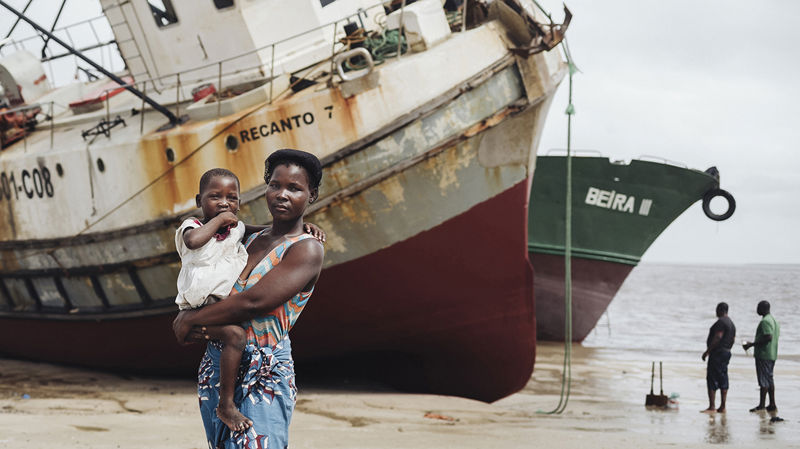The chain of aid consists of thousands of hard-working workers and volunteers
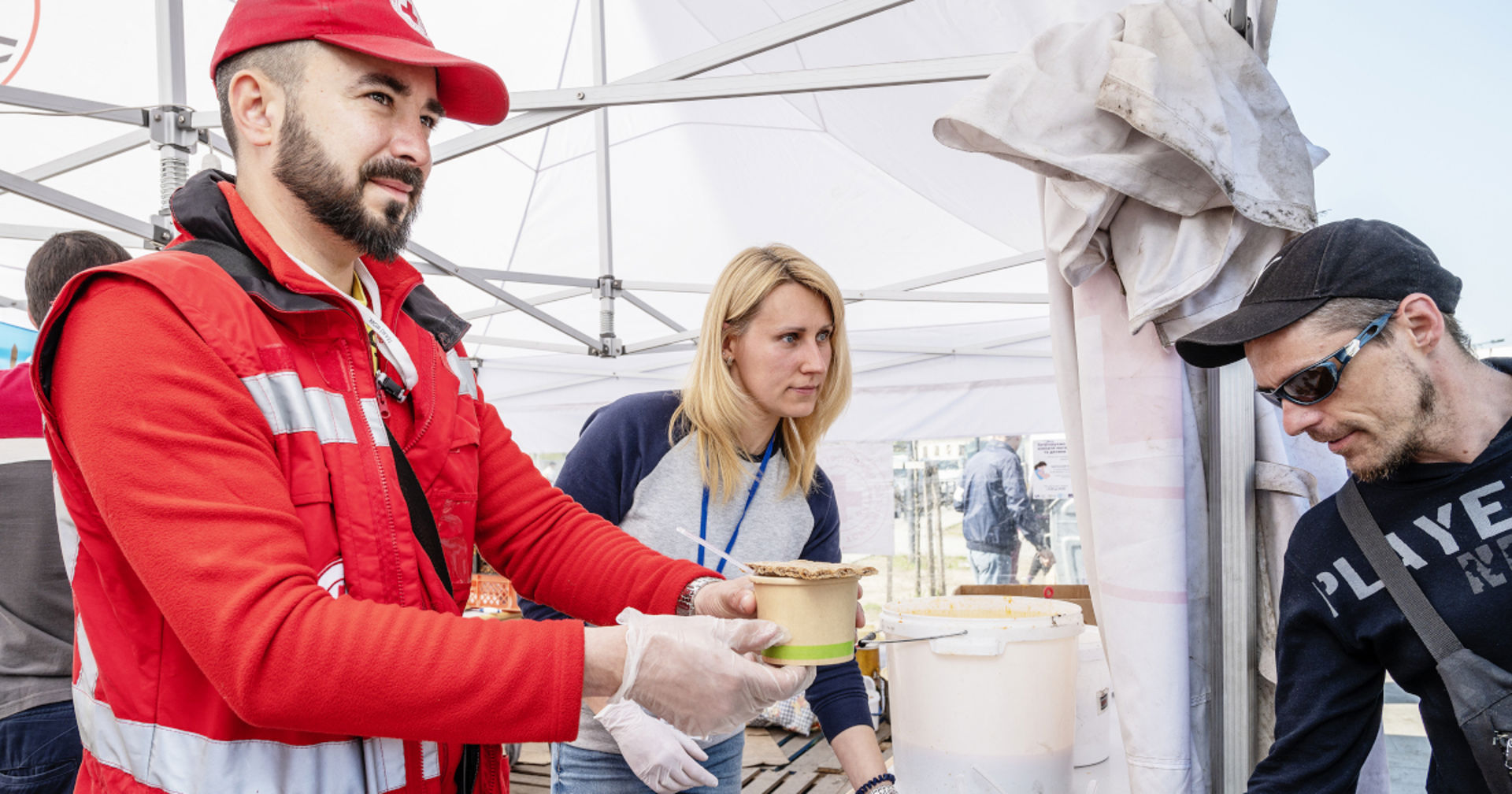
People who have fled the conflict in Ukraine and volunteers and workers of the Red Cross shed light on what everyday life is like in the middle of a humanitarian crisis.
The conflict in Ukraine has forced more than 13 million people to flee their homes. The crisis has caused human distress and suffering but it has also inspired people to lend a helping hand. This is reflected in the following photos and stories collected by the Finnish Red Cross’ communications delegates Ville Palonen and Leena Reikko.
Aid given and received in Ukraine
Luda Ostoparentsko, her children and cat fled Mariupol for Lviv in western Ukraine in early May. The father of the family is a migrant worker in the Czech Republic and Luda is planning on fleeing there as well with her children.
“We were too scared to stay at home any longer,” she explains.
The family was grateful for the Red Cross’ food aid.
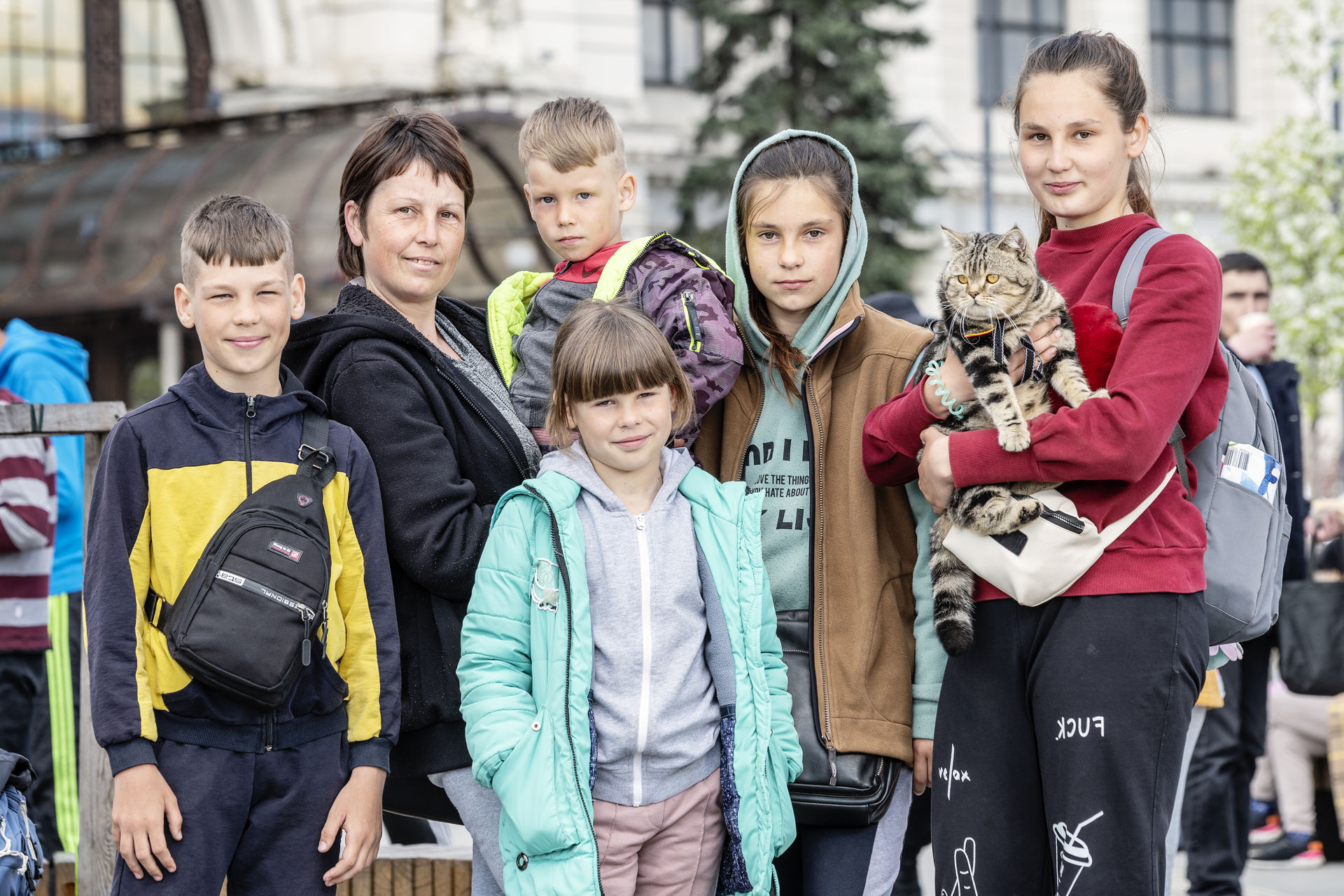
Many refugees remain in Ukraine. They have been accommodated in school buildings, for example. Approximately 80 refugees are spending their nights in school number 52 in Lviv. The Red Cross provides aid to these refugees.
The team of aid workers also includes teachers. Svitlana Kutjanska and Oksana Lavalen help prepare food for the refugees and clean the school, in addition to teaching children remotely. Sometimes, they babysit children when their parents must be somewhere else.
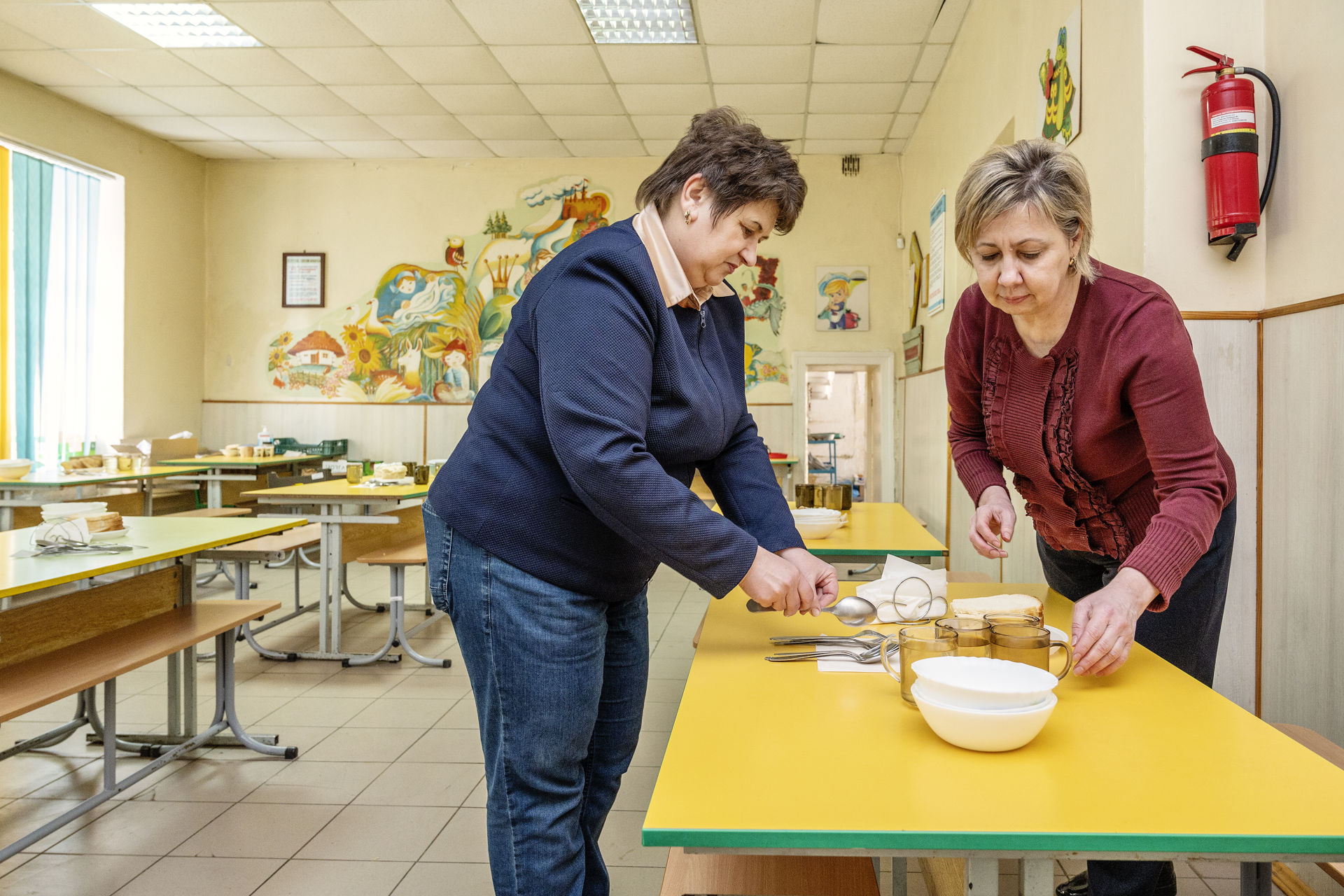
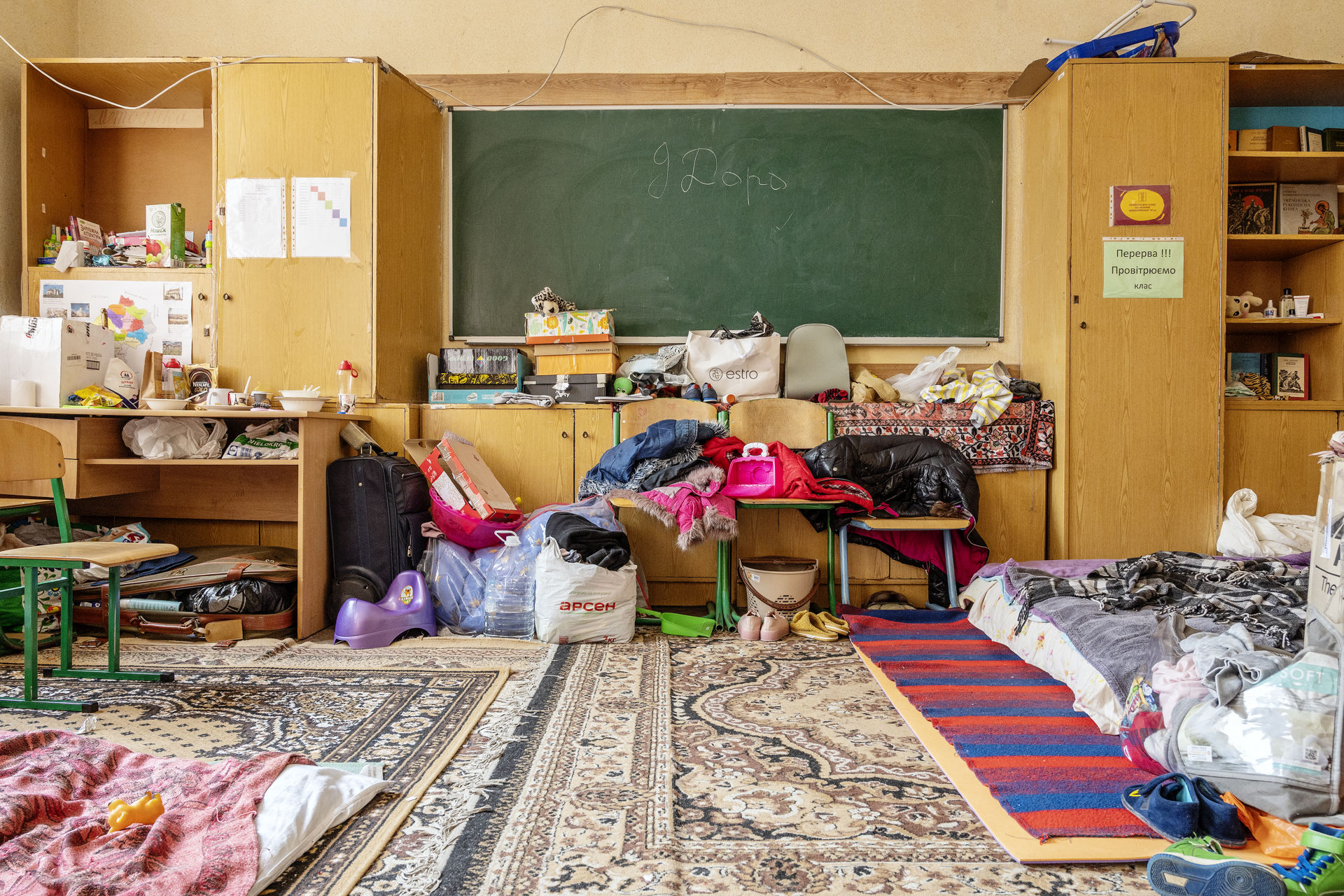
Olga Alekshenko lives in school number 52 with her 18-year-old daughter and cat. Her son is in the army and the fate of her husband is unknown.
“The hardest thing is to not know what the future will bring. Will we be able to return home or should we move on?”
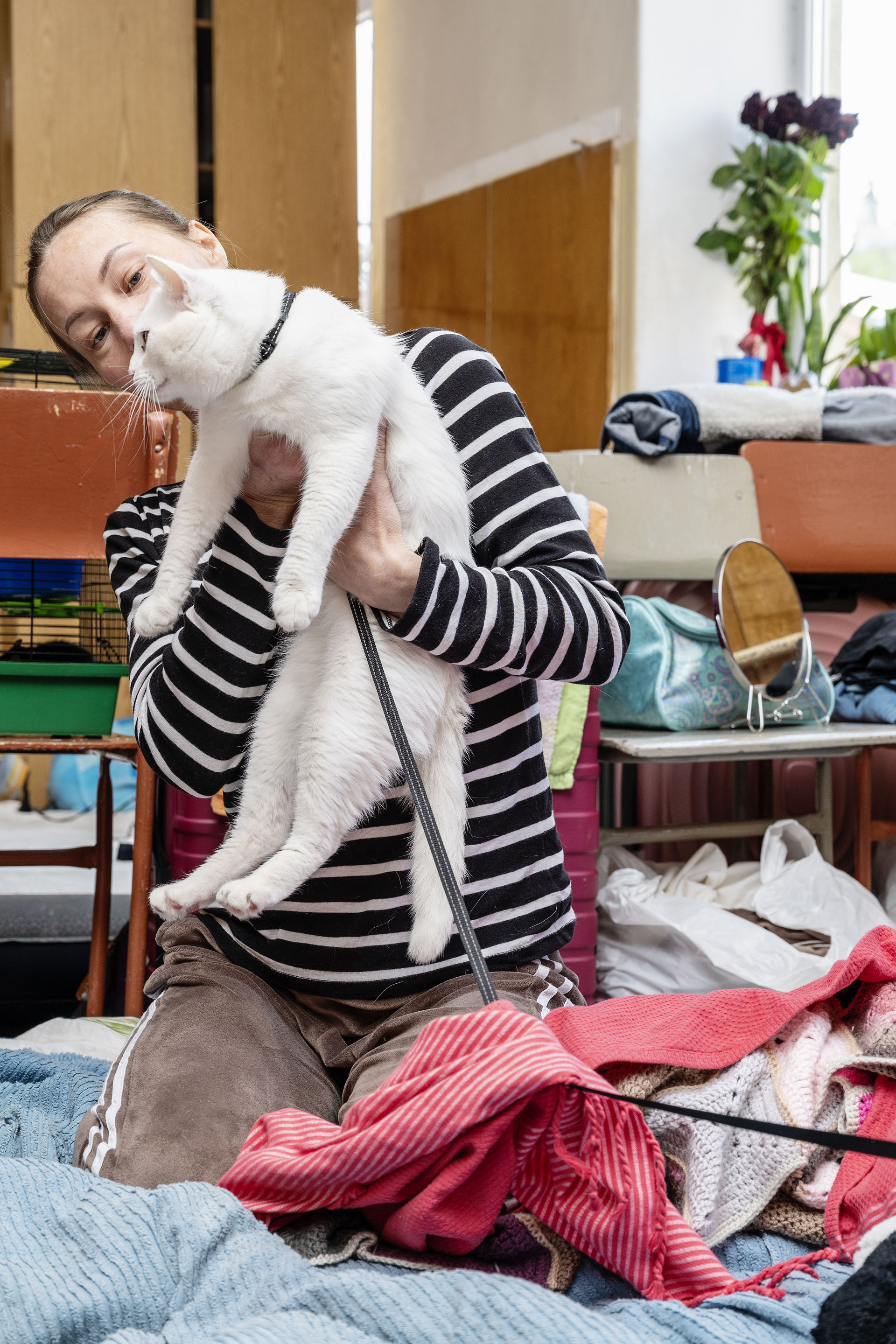
The conflict in Ukraine has caused a massive humanitarian crisis that cannot be weathered without external aid. The Finnish Red Cross has sent logistics and healthcare professionals, among other experts, to both Ukraine and its neighbouring countries.
The logisticians help deliver aid supplies and the health workers help locals set up health clinics, for example.
Nurse Julia Perä is in Ukraine to assess the need for healthcare services. Ukraine’s healthcare system is struggling as refugees spread around the country.
“ In many regions, the number of people has doubled, even tripled.”
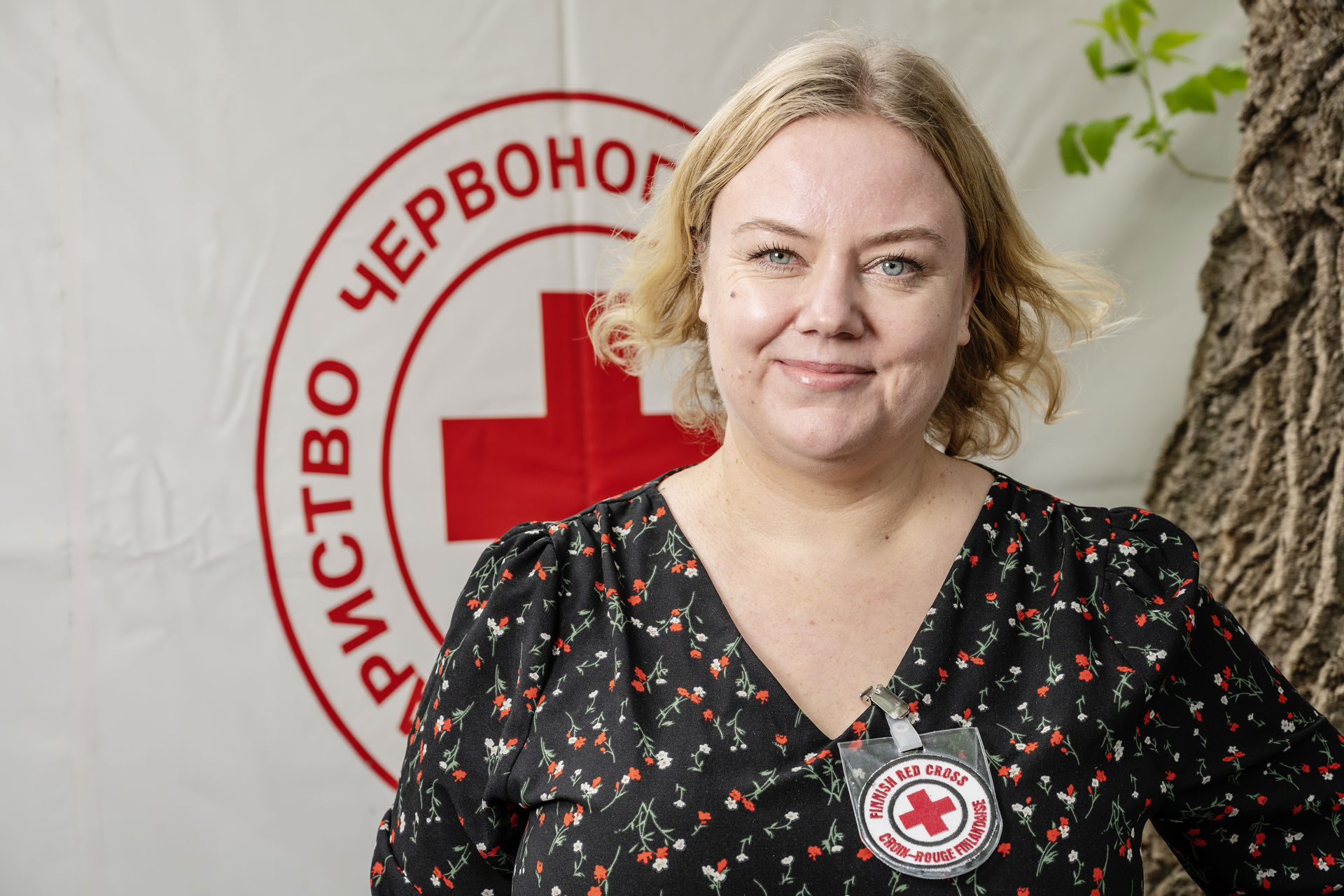
The workers and volunteers of local Red Cross organisations play a central role in the operation. The Red Cross organisations in Ukraine and neighbouring countries have gained thousands of new volunteers as a result of the crisis.
In the city of Uzhhorod, located in western Ukraine, volunteers help distribute supplies, such as clothes, hygiene supplies and food.
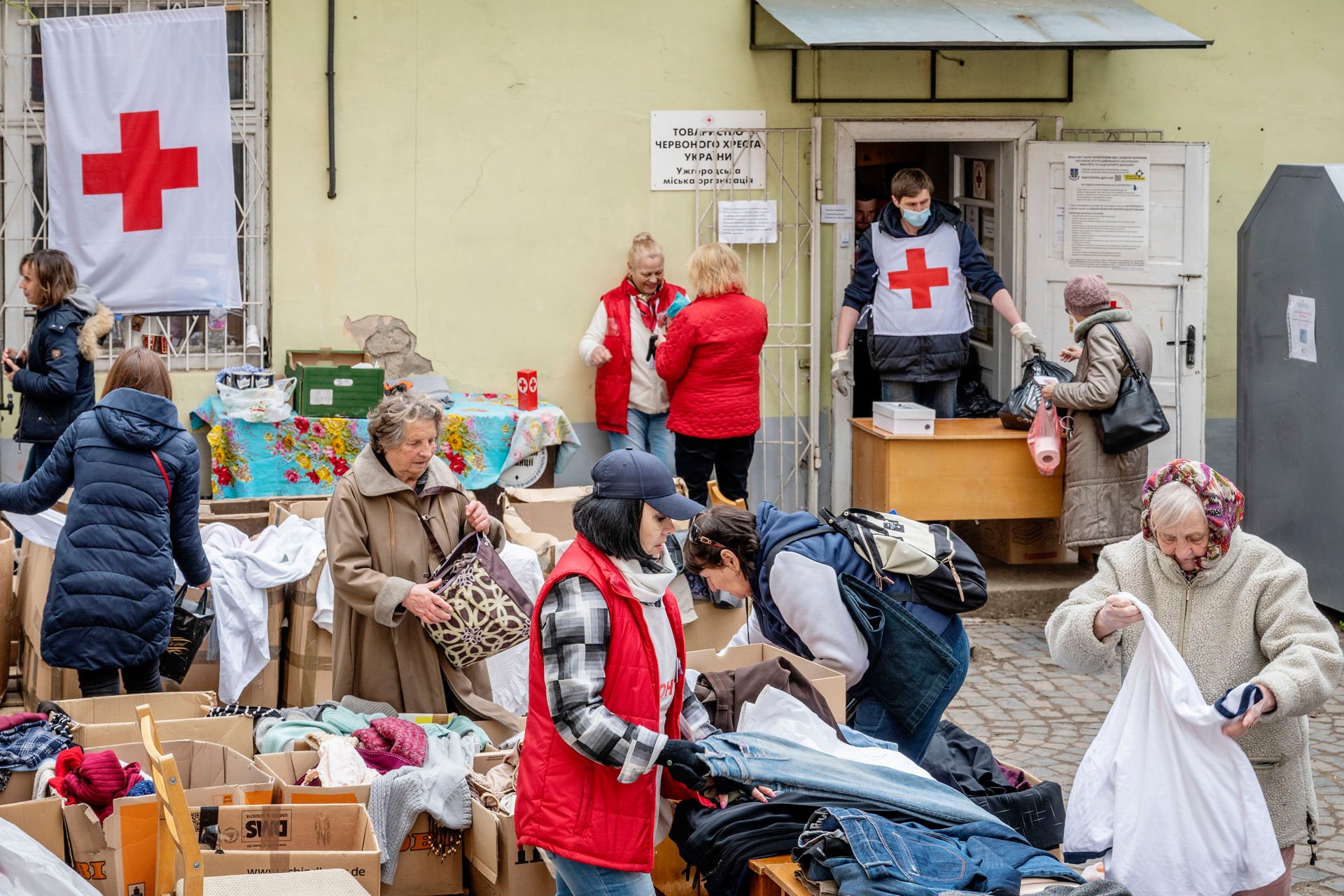
One of the volunteers, Bahaeddin al-Jaradar, was about to complete his medical studies in Uzhhorod when the conflict began.
“I happened to be in Kiev when the first missiles hit the city. It was terrifying. I came to Uzhhorod, because that is where I lived as a student. The Ukrainian Red Cross was recruiting students and I decided to join the team.”
“The first few weeks were difficult, because I was unfamiliar with the organisation. Now, I enjoy my role as a volunteer. I come from a conflict area and know what it is like. This way, I can be useful.”
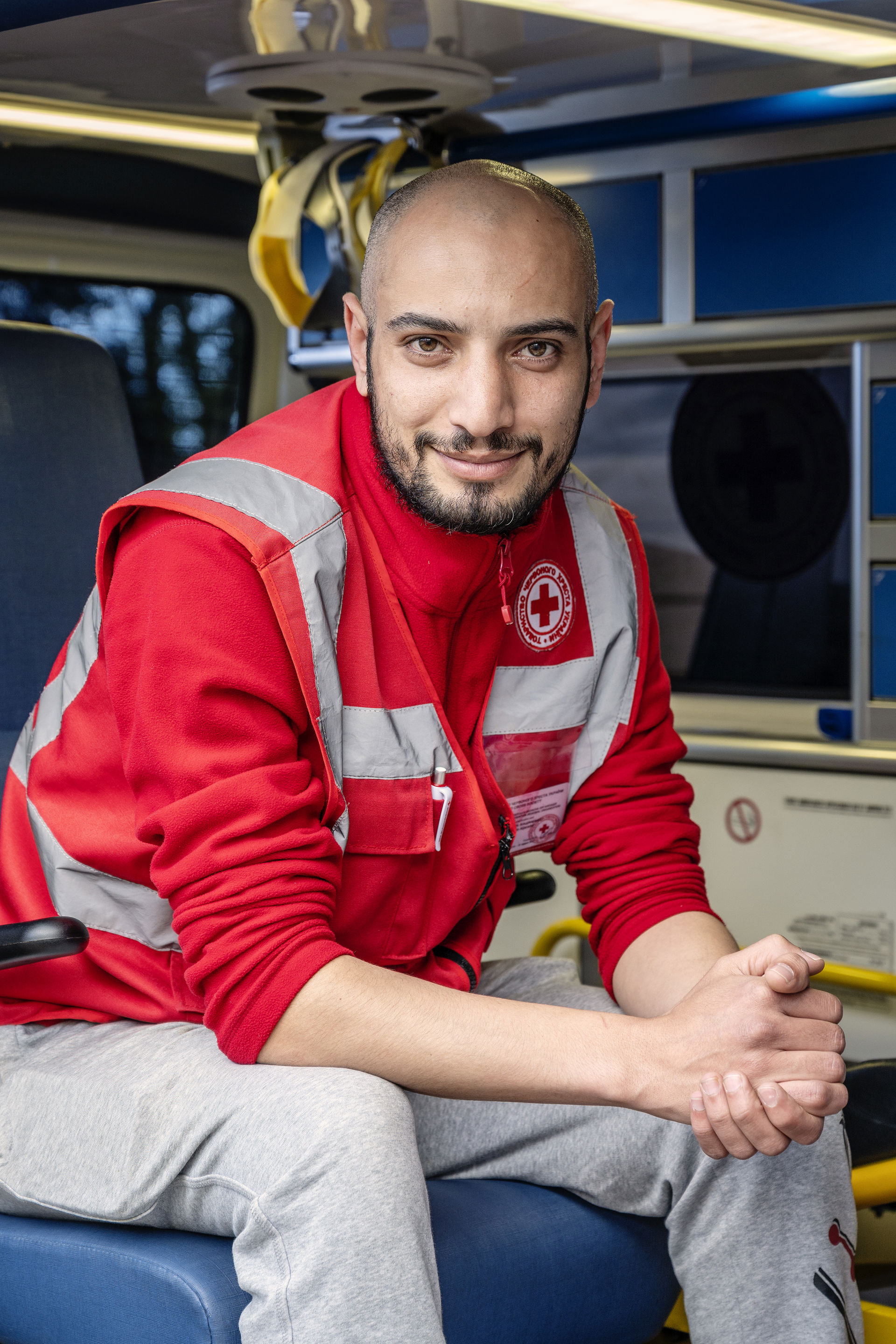
The crisis has also inspired ordinary people to help. Shoe and clothes retailer Alina Lavrenko donated 400 pairs of shoes and 600 pieces of clothing, all brand-new, to the Red Cross.
Lavrenko has recently moved to Uzhhorod from Central Ukraine. She knows many people who have been forced to leave their homes.
“I want to help other people because I can. In Uzhhorod, people are helping as much as they can. We all hope that the war will end soon and we will have peace.”
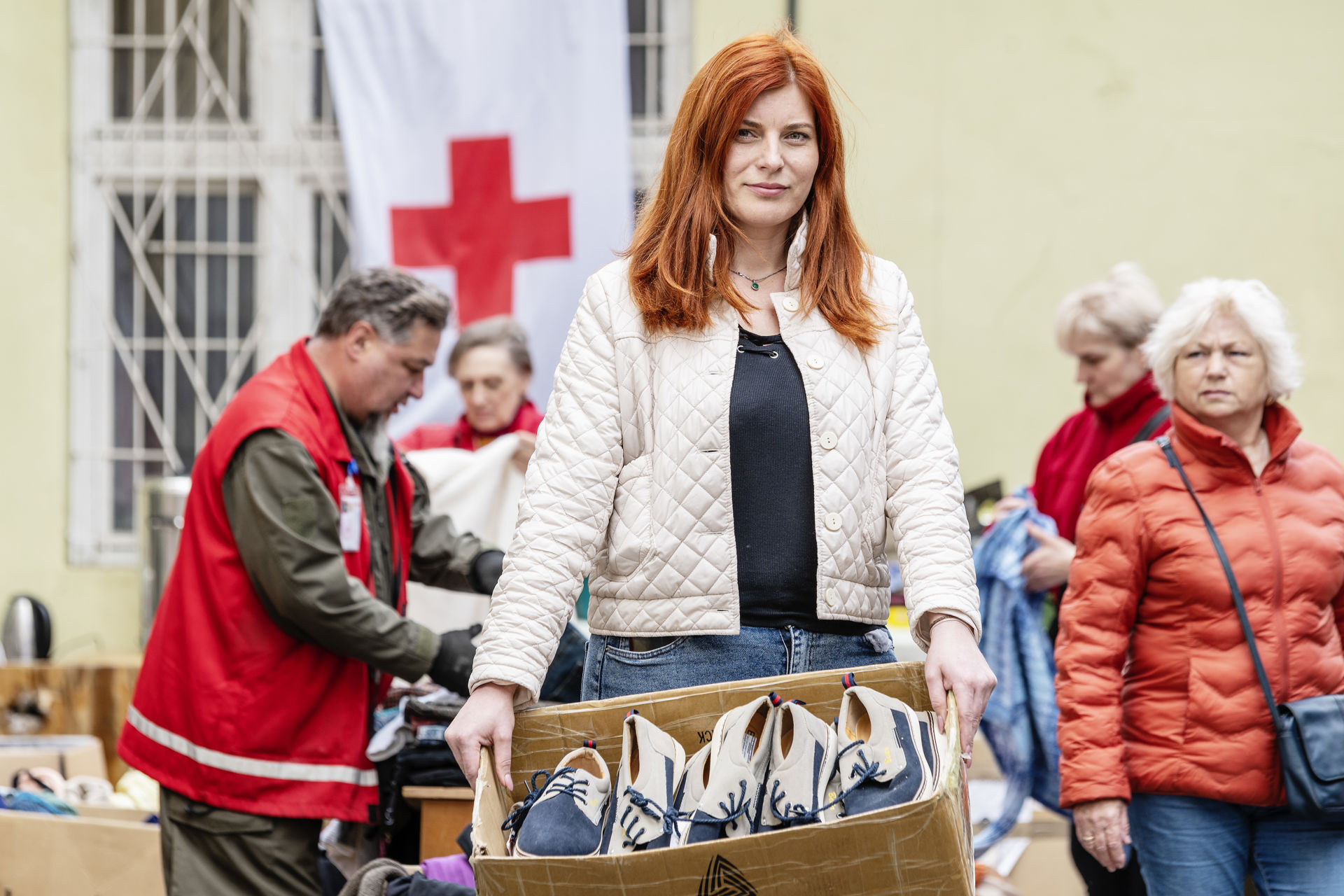
Refugees need basic supplies. 26-year-old Katia Dobrovolska and her 5-year-old daughter Lilia fled Kharkiv for Uzhhorod in March. They are staying in a hostel room with six other people. Katia came to pick up hygiene supplies from the Red Cross.
“Shampoo and washing powder are my priorities. There is a great deal of washing to do. Earlier, I got this red coat and food aid from the Red Cross’ relief centre.”
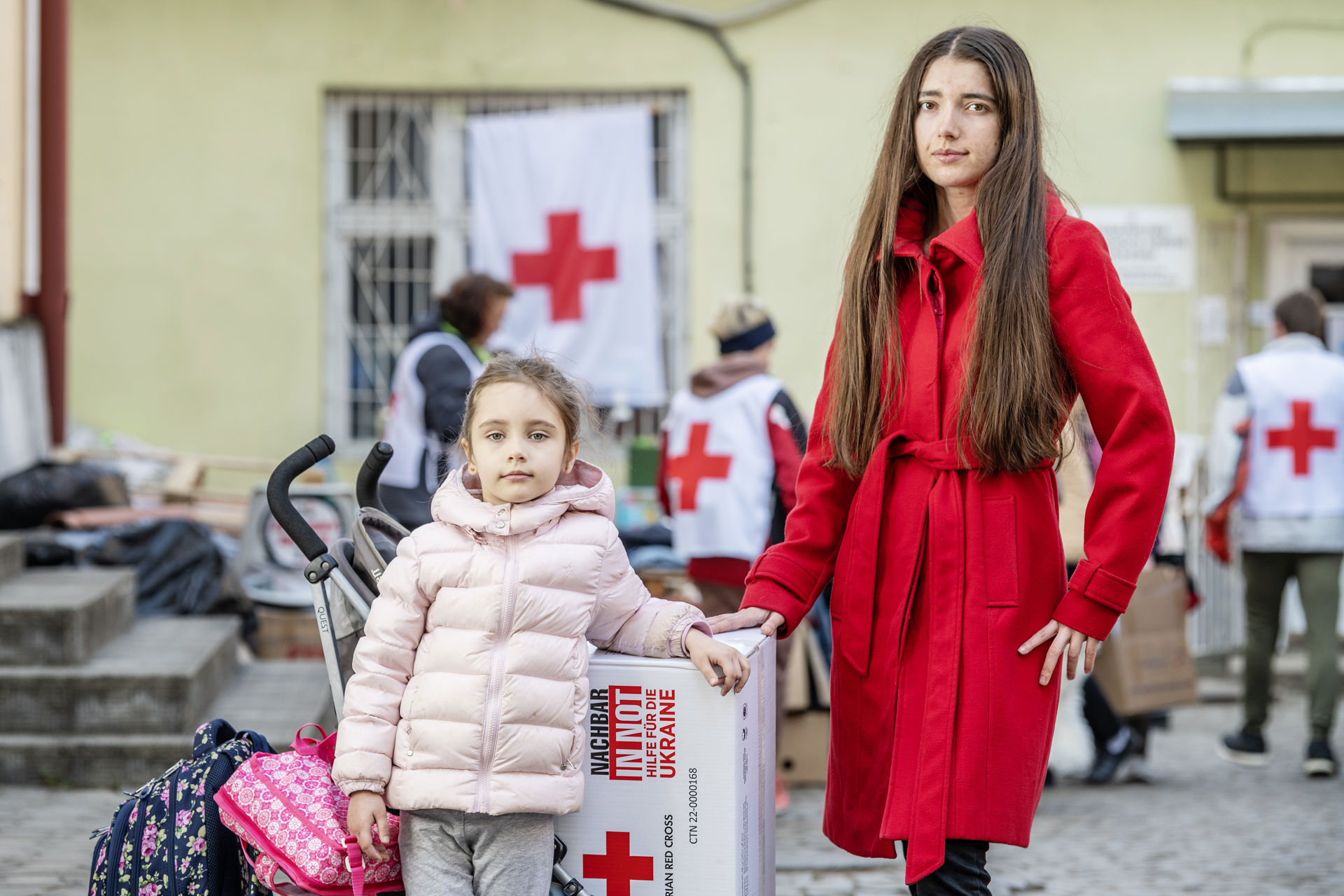
Living in the middle of a conflict is hard. The president of the local Red Cross, Valentina Mitrovtsij , has been working with all her strength since February. “There is a shortage of everything and we are unable to help everyone.”
Mitrovtsij has also seen rays of hope in the dark circumstances.
“I am happy if we are able to help even a small number of people. It gives us strength to carry on and do our best on behalf of our fellow countrymen and countrywomen.”
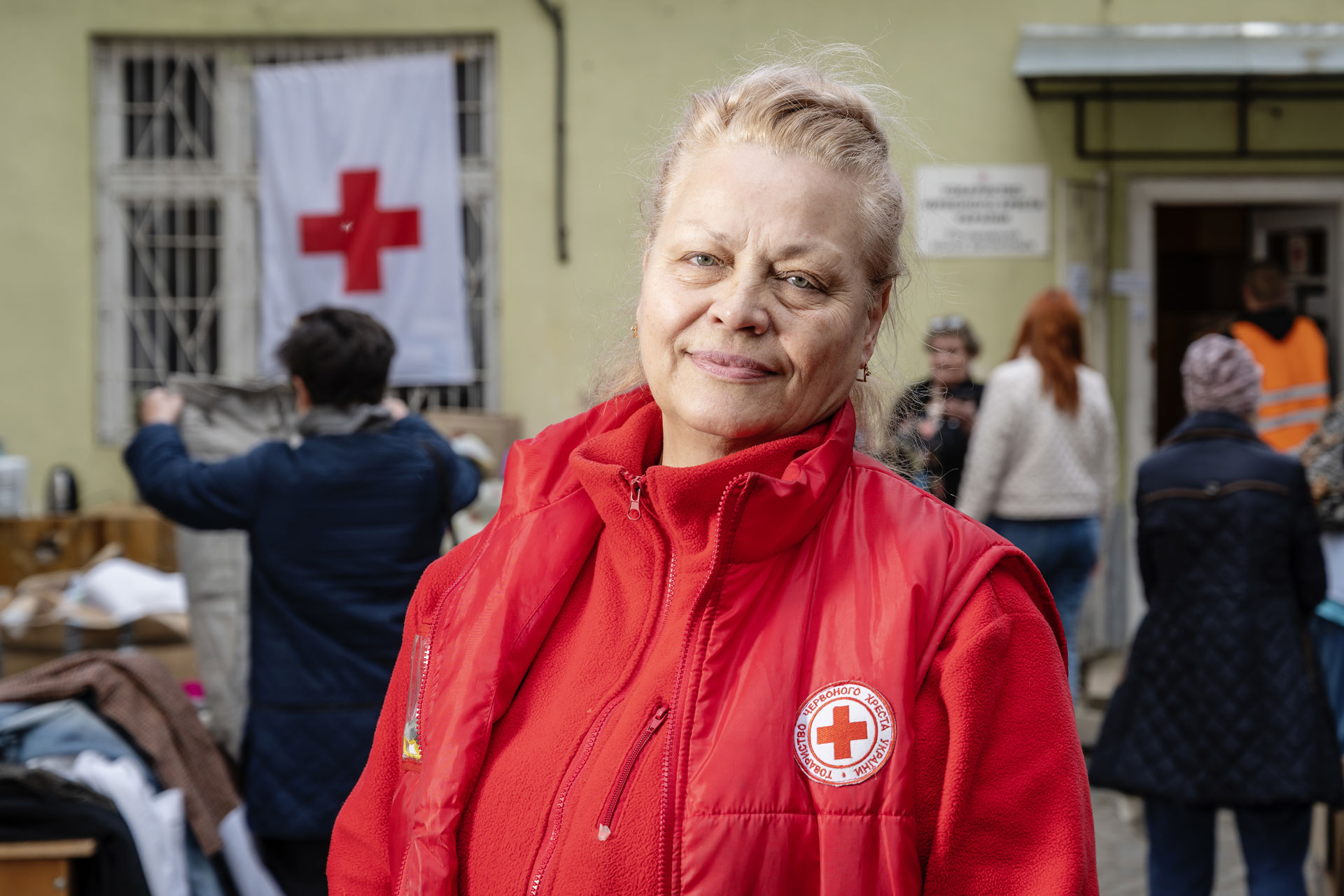
A total of more than 1.6 million people have received aid from the Red Cross. This work will continue for years even beyond the end of the conflict.
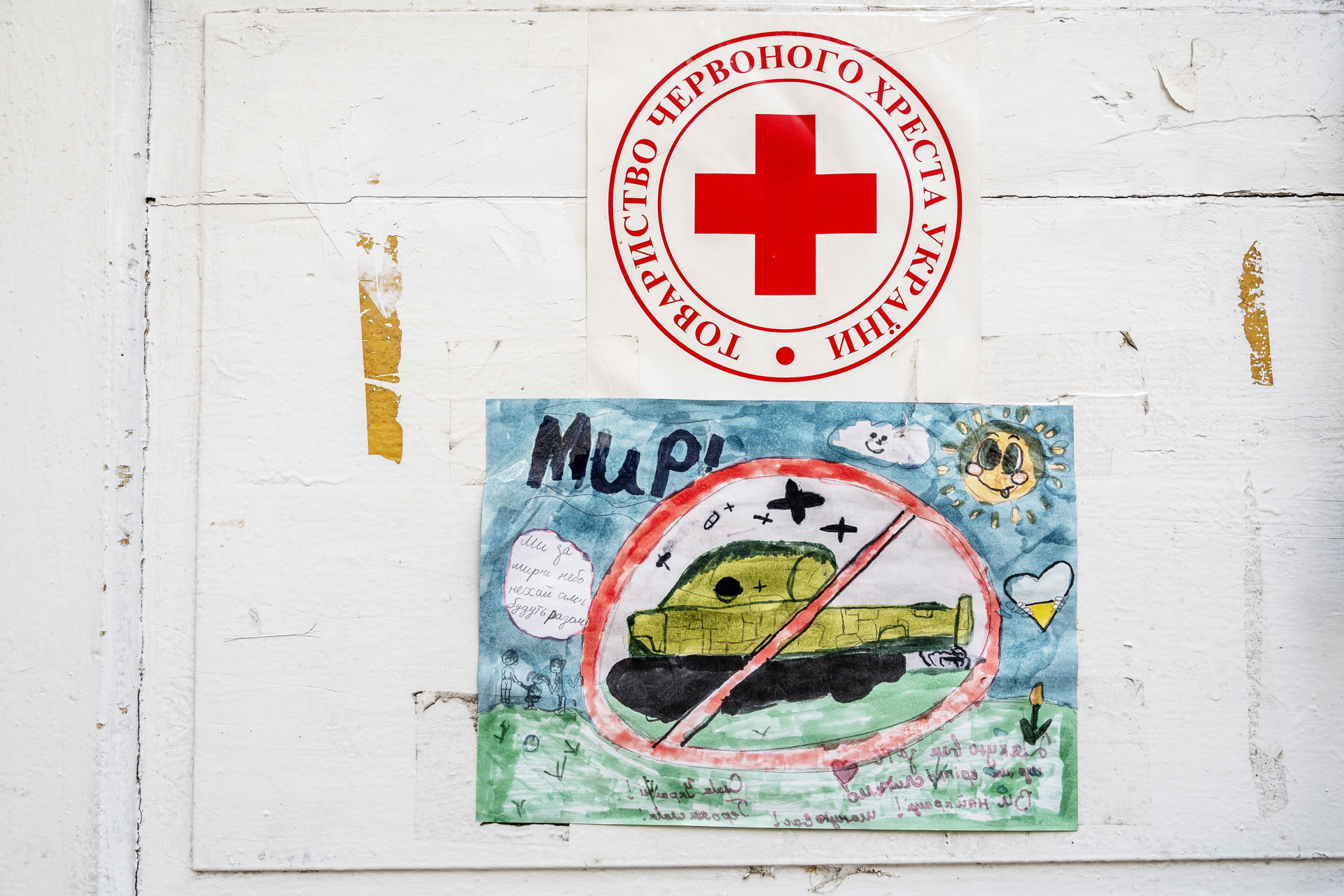

Follow our work in helping people affected by the humanitarian crisis in Ukraine

Donate
